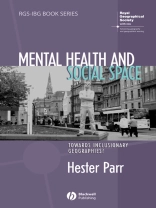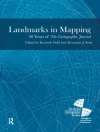Through a series of case studies this book brings to the fore the
voices, lives, and capacities of people with mental health problems
as well as the difficulties they face. It effectively demonstrates
the ways people with mental health problems are active in
re-scripting versions of social recovery through their use of very
different community spaces.
* * Offers a ‘hopeful epistemology’ not typically found in mental
health-related research
* Interrogates neo-liberal dogma that defines people with mental
health problems as active social citizens wholly responsible for
their own recoveries and acceptance
* Brings to the fore the voices of, lives, capacities and
difficulties facing people with mental health problems
* Imaginatively differentiates rural, urban, interest and
technological communities, disrupting familiar and conventional
accounts of social inclusion and ‘the local’
* Demonstrates how people with mental health problems are active
in re-scripting their own social recoveries through their use and
understanding of different social spaces
Table of Content
List of figures.
Series editors’ preface.
Preface and acknowledgements.
1 Geographies of difference: understanding mental (ill) health
and social space.
2 Placing mental health: community, inclusion and
citizenship.
3 Cultural landscapes: rural communities and mental health.
4 Therapeutic natures? urban gardening, citizenship and social
inclusion.
5 Artistic spaces: the arts and mental health.
6 Virtual communities: the Internet and on-line geographies of
self-help.
Conclusion: innovative geographies of mental health.
References.
Index.
About the author
Hester Parr is Reader in Human Geography at the University of Dundee. She has worked on questions of mental health for over ten years, publishing in a range of journals, including Society and Space, Transactions of the Institute of British Geographers, Area, Health and Place and Social and Cultural Geography.












